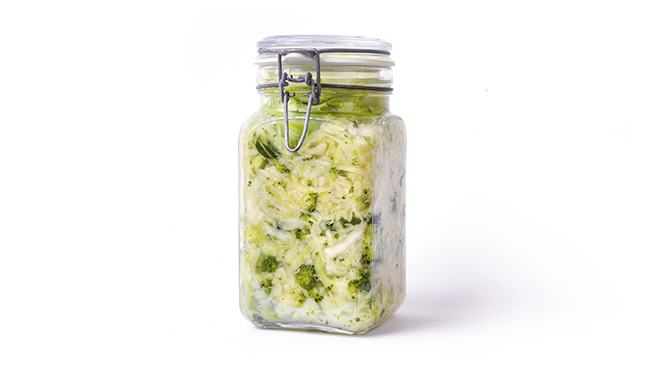From common cold and clinical
depression to constipation and cancer — 90 percent of the diseases begin in the gut.
Over 2000 years ago, ancient Greek physician Hippocrates also known as the father of modern medicine said — “All diseases begin in the gut.” Was he right? Well, while his theory was not regarded as completely accurate, research and modern gastroenterology studies show that many chronic metabolic diseases are directly related to gut health. From simple ailments like the common cold, constipation, bloating, and flatulence to more severe issues like gastritis, irritable bowel syndrome, diabetes, hypertension, obesity and cancer — gut health impacts it all. Moreover, the gut also influences psychological issues like insomnia, mood swings, stress, anxiety, clinical depression and neurological ailments like Parkinson’s disease, Alzheimer’s disease, and skin diseases like psoriasis, eczema etc.
For the uninitiated — the gut is where food passes after digestion and comprises of the small intestine, large intestine and colon. It is home to over 100 trillion microorganisms, known as the ‘microbiome’, and the gut’s primary function is to aid digestion, nutrient metabolism, excretion of waste, and prevention of colonization of pathogenic microorganisms. The gut also has a major influence on the development and function of the immune system, as well as on gut-brain communications. It is the sole source of nutrients for the body, and an improper functioning of the gut, can affect all the major organs like the liver, kidney, heart, brain, skin and hair.
New York-based Holistic Nutrition and Natural Healing Practitioner, Nancy Mure rightly said, “If there’s one thing to know about the human body; it’s this: the human body has a ringmaster. This ringmaster controls your digestion, your immunity, your brain, your weight, your health and even your happiness. This ringmaster is the gut.”
Hailed as the second brain, the gut has a huge impact on overall health and well-being; hence, gut health cannot be neglected.
Now that you have understood the importance of the all-mighty gut, below are a few ways to improve your gut health and maintain a healthy digestive tract.
Cut down on Sugar and Artificial Sweeteners

It is a universally established fact that sugar intake in excess can lead to several health issues. This also includes negative consequences on your gut. Too much consumption of sugar and sweeteners can directly impact the gut microbiome, causing gut dysbiosis, which is an imbalance of gut microbes. Dr. Will Bulsiewicz, gut expert and the author of the book ‘Fiber Fueled’, has quoted, “When it comes to added sugar and gut health, there’s still a lot we don’t
know. But scientific studies do suggest that it promotes an inflammatory profile in the gut and damages the microbiome.”
According to recent studies, high-sugar diets are responsible for higher levels of inflammation. This inflammation further irritates the gut, decreases the number of good bacteria, and damages the protective mucus layer leading to the leaky gut syndrome. Leaky gut syndrome is a condition where food and toxins can pass through the intestine and into the bloodstream, leading to a host of issues like bloating, inflammation, stomach pains, food sensitivities, and changes to the gut microbiome.
Not just sugar, but even artificial sweeteners are not favourable for the gut. Researchers have reported that the artificial sweetener aspartame increases the number of certain bacterial strains that are linked with metabolic disease. Furthermore, intake of artificial sweeteners can negatively impact blood glucose levels due to their effects on gut flora. Hence it is advisable to limit your consumption of sugar and sweeteners.
Replace packaged food with Fresh Food

No matter how lightly it’s taken but fresh food has no substitute. Fresh food gives you complete nutrition and is wholesome food. Freshly cooked food compliments the gut microbiome, is digested faster and keeps you away from a sluggish digestive process. On the other hand, processed food has no nutritional value and the chemical additives present in processed foods, affect the gut environment and increase the risk of diseases. Eating freshly prepared food with digestive spices strengthens the digestive system and enhances the elimination function of the gut. Ayurvedic doctor, Dr. Dixa Bhavsar, recently shared, “Eat warm meals, ideally freshly cooked but as long as you avoid anything coming out straight from the fridge, you’ll preserve your digestive power (Agni). This allows your digestive enzymes to work efficiently.”
Include more Nuts, Whole Grains, Veggies, and Fresh Fruits in your Diet

Fresh fruits, veggies, whole grains, and nuts are loaded with fibre, which is quintessential for the intestines to promote healthy functioning of the gut. Researchers have found that a proper fibre-rich diet feeds and makes the good gut microbes thrive. The more of these bacteria we have in the gut, the thicker the mucus wall, which in return prevents leaky gut syndrome and lowers inflammation throughout the body.
Whole grains and nuts have been proven to increase the diversity of beneficial bacteria in the gut. The same is true of fresh vegetables, beans and legumes, and fresh fruits, which serve as nutrition for your microbiome.
Exercise Regularly

Exercising regularly is another simple way to optimize your gut health. There is plenty of scientific data which suggests that a consistent exercise routine improves gut health, which may, in turn, help keep obesity at bay.
More oxygen reaches the brain and bloodstream when we exercise, because of which the core body temperature heats up and blood circulation improves. It is said that these conditions are great for the microbiome to flourish.
Make Fermented Foods your Best friend

According to a research conducted by the Stanford School of Medicine, a diet rich in fermented foods enhances the diversity of gut microbes and decreases molecular signs of inflammation. Fermented food items contain a high count of lactobacilli bacteria, which are extremely beneficial for the microorganisms that reside in the gut. They also help convert sugar to acids and alcohol. So, ensure to load your plates with gut-friendly fermented foods such as yoghurt, kefir, fermented cottage cheese, kimchi and other fermented vegetables or consume vegetable brine drinks and kombucha tea regularly.
Blend in the Spices and Herbs

Never underestimate the power of common spices and herbs, especially when it comes to boosting your health. Mentioned in ancient ayurvedic texts and regarded highly by modern science, many common spices and herbs go beyond their primary role of enhancing the flavour of food and have profound healing effects on the body. Many herbs and spices, apart from encouraging healthy digestion, also play a huge role in improving gut flora.
Spices and herbs like turmeric, ginger, ajwain, cardamon, basil, cumin, cloves, fennel seeds, cayenne pepper, garlic, cinnamon, and peppermint are loaded with a ton of health benefits, give quick relief from several common ailments, aid the stimulation of digestive enzymes and of course are great for the gut microbes. Hence never shy away from these simple yet effective kitchen treasures, and use them in your diet regularly.
Get Proper Sleep

Another factor crucial for overall good health is getting proper sleep. Doctors and health practitioners across the globe have emphasized the fact that good sleep is essential for one’s optimal health and well-being. One’s sleeping pattern not only affects energy levels but also determines the functionality of every system in the body, including the immune system, heart, brain and even digestive system. If you are not sleeping well, your gut health is sure to go for a toss. Studies suggest that lack of sleep can trigger a hormonal imbalance and increase the level of the stress hormone cortisol in the body. Increased level of stress is one of the major causes of intestinal permeability issues — more commonly referred to as the leaky gut syndrome. So, make sure you get at least seven hours of sleep every night.






